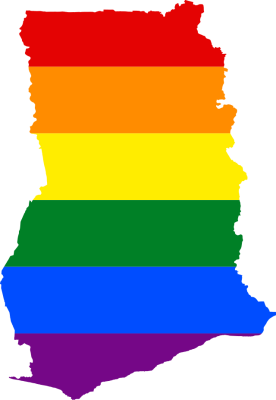In late February, Ghana’s parliament passed a bill that will sentence those who identify as LGBTQ+ to jail time. The bill also carries similar punishments for advocates of LGBTQ+ rights, along with increased jail sentences for adults who engage in consensual gay sex.
These extreme punishments are a big legal shift for Ghana, but not necessarily a sudden one. A law was passed in 1960 during English colonialism that outlawed gay sex, but it was not enforced. LGBTQ+ Ghanaians still dealt with discrimination and abuse, but had yet to fear the legal repercussions of their sexuality.
One Ghanaian victim was beaten by a group of men after revealing his feelings for one of the abuser’s brothers. A video of the attack was published online, and the victim’s father kicked him out of their home out of shame.
This story is heartbreaking, yet not unlike others in Ghana. At the time of the attack, it was an example of standalone abuse towards a man who had committed no crime. Now, the same man could be thrown in jail for his sexual orientation. This shift began with the World Congress of Families (WCF), an American hate group that networks intolerance across the globe to protect traditional Christian values.
In 2019, the WCF held a conference on the importance of the ‘natural family’ in Accra, Ghana’s capital. Many different religious organizations were in attendance, but so were members of Ghana’s parliament. Following the event, lawmakers began pushing for a bill to restrict LGBTQ+ rights. Four years later, this bill has passed unanimously in Parliament and is awaiting approval from the president.
It’s easy for me to be critical of Ghana from my progressive bubble of western Massachusetts. This state was the first to legalize same-sex marriage, and this area houses numerous forward-thinking colleges and universities, as well as the lesbian capital of the nation, Northampton. It doesn’t come as a surprise to anyone that Ghana, a deeply religious nation, isn’t as quick to be as socially accepting as Massachusetts. The society that I live in and the Ghanaian society are very different, and that’s important to recognize.
Yet, I just can’t get over the backslide of legislation. While Ghana was already a few decades behind the U.S. in terms of LGBTQ+ acceptance, they’ve completely reset the social standard. In the eyes of the law, gay people are now criminals, and so are advocates of LGBTQ+ rights. The bill removes tolerance the LGBTQ+ community deserves, and instead gives it to their detractors and abusers, who are now encouraged to discriminate even further.
The members of parliament who approved this are liable for any further abuse towards queer people in their country. The American extremists of the WCF who fly to Accra, stay in a nice hotel, peddle their hatred and return to their comfortable lives in the states are also responsible for this abuse against queer Ghanaians. LGBTQ+ people will face the loss of jobs, families, freedom and safety because of this legislation, and the WCF doesn’t have to witness this fallout.
It’s both shameful and telling that an American group helped to push this bill. I’m embarrassed that people from my country are on the hook for so much pain that has yet to come. I’m also concerned that such hatred is still emerging from the U.S., nine years after the Supreme Court legalized same-sex marriage nationwide. In my own liberal New Jersey hometown, a rainbow crosswalk was splattered with paint and a business displaying a pride flag had its window smashed in with a brick.
In Ghana, hatred against LGBTQ+ people is being intensified. But elsewhere, improvements offer hope. Back in 2019, a few months before the WCF made their hate-pilgrimage to Accra, Botswana’s high court ruled that laws criminalizing same-sex relationships were unconstitutional. The following year, Angola legalized same-sex relationships and banned all discrimination based on sexual orientation. While most African countries still outlaw homosexuality, that majority is slowly shrinking. The good work on the continent must continue.
Here in the states, the WCF does not represent Americans. They represent a small-minded minority of hateful extremists. They won’t go away, and we shouldn’t ignore them. When given the chance, their hateful rhetoric can spread like wildfire, and pretending they’re not a threat is irresponsible. But by remembering their part in Ghana, we can fight their hatred with love.
Owen Ray can be reached at [email protected].



















